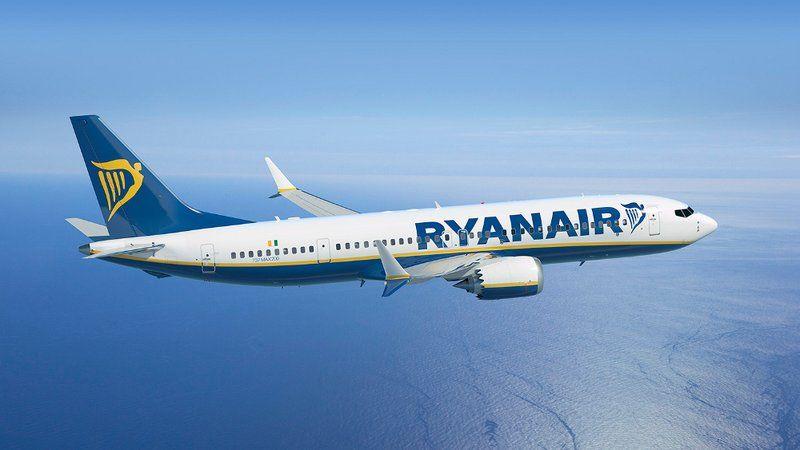GTF Problems Could Be Good News For Ryanair, Bernstein Says

Ryanair could benefit from the Pratt & Whitney engine problems that will see hundreds of aircraft grounded for engine maintenance in the coming years, analysts at Bernstein said.
On Sept. 11, Pratt & Whitney parent company RTX set out a “fleet management” plan to deal with repairs needed to PW1000G geared turbofan engines.
The new plan comes at a time of limited capacity in MRO facilities and with hundreds of Airbus A320neos expected to be grounded, with a peak in early 2024, some airlines will be hit hard.
However, there are likely to be positive benefits for other carriers.
“We see Ryanair as the largest beneficiary here,” wrote Bernstein analyst Alex Irving in a Sept. 21 research note. “Its extensive footprints in Central and Eastern Europe and Spain correspond to Wizz Air’s and Vueling’s home turf, respectively, and we could see capacity on Ryanair’s routes 1% lower.
EasyJet’s greater focus on northern Europe means it will not be handed as big an advantage as Ryanair by the problems experienced by competitors, even though it should benefit, as its aircraft are not powered by Pratt & Whitney engines.
Irving added: “For airlines not operating PW1100G-powered planes, the most immediate impact is reduced industry capacity, and therefore higher yields.”
The Bernstein note said Wizz Air would feel the strongest impact from the GTF problems.
It has 52 affected aircraft, or 28% of its fleet and 29% of seat capacity on GTF-powered aircraft produced in the relevant time frame.
The Budapest-based LCC said Sept. 13 that it would reduce capacity by 10% for the second half of its 2024 financial year, which runs to end-March, because of the engine issues.
“We expect an ongoing net loss of productivity for the next two years before recovering in 2026,” Bernstein said. While it will likely receive compensation for leasing costs, they won’t make up for the loss of aircraft carrying passengers and earning money, the analysts noted.
For Lufthansa Group, the impact from its 48 PW1100G-powered A320neos will be on short-haul feeder flights within its network airlines, Lufthansa and SWISS.
“Both are highly dependent on connecting travel through hubs to feed long-haul flights, and a material reduction in short-haul capacity has broader implications on intercontinental routes,” Bernstein said. “However, offsetting this, the group is already activating plans. It has built a reserve of spare engines. It may extend the lives of older planes and take additional capacity on short-term lease [if available]. It has one of the world’s largest MRO shops as a subsidiary, and will likely use this to support the rapid return to the skies of its fleet. Early discussions with the company suggest it should be able to alleviate much of the impact.”
Nevertheless Lufthansa’s network competitors may see some benefit from Lufthansa not being able to offer as compelling a connecting product, given the reduction in narrowbody capacity, the Bernstein note said.
IAG for its part will be among the least impacted of PW1000G operators, as they are concentrated within Vueling, the low-cost operator that only makes up 13% of group capacity, Bernstein said, although 19% of Vueling’s own capacity may be at risk.
Overall, out of Europe’s roughly 4,100 narrowbody aircraft, 377 or 9% have either PW1100 or PW1500 engines, while those affected number 169 aircraft, Bernstein said.
Turkish Airlines’ 31 affected aircraft represent about 11% of capacity.
Bernstein warned that if a problem of the same magnitude related to the PW1500G engines which power Airbus A220s emerged, that would hurt Air France-KLM and Lufthansa.
Air Baltic’s all-Airbus A220 fleet ran into engine problems earlier in 2023, leaving the carrier forced to wet lease aircraft to operate its summer schedule. While it still has six wet-leased aircraft in its fleet, down from as many as 13 during peak summer weeks, the problems are resolving and that should reduce to zero by November, CEO Martin Gauss told Aviation Daily Sept. 19.





